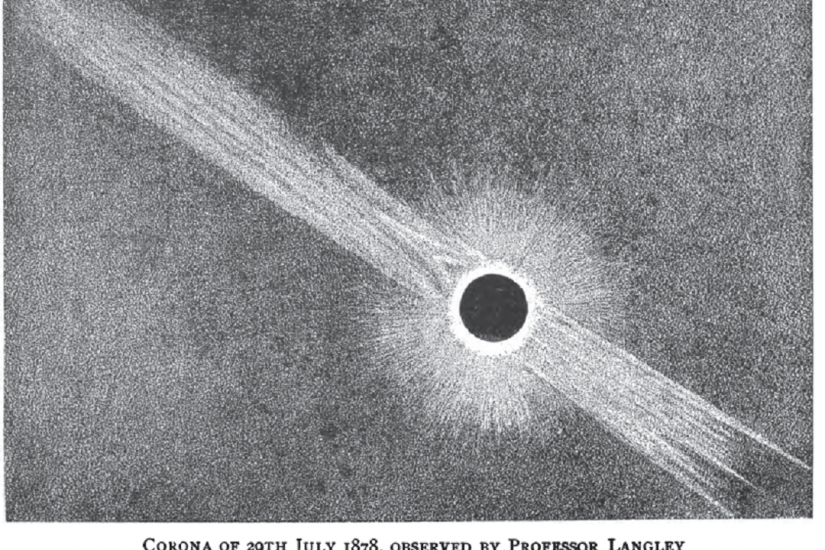As Americans buy up special eclipse glasses and flock to one of the dozen states that will see a total solar eclipse on Monday, authorities have become concerned about whether there will be enough bathrooms, hotels, restaurants or supermarkets to sustain these tourists.
The hype surrounding this summer's eclipse is "remarkably similar" to the kind that swept the U.S. in the walk-up to the eclipse of July 29, 1878, which was seen from the Montana territory to Texas, says David Baron, author of American Eclipse.
Astronomer Fredrich Bessel had finalized the math necessary to predict solar eclipses in 1824 and the transcontinental railroad had been built in 1869, so the ingredients were in place for a much-anticipated event. The U.S. Naval Observatory helped gin up enthusiasm by publishing a booklet of instructions, which included information about what to expect on the big day: "The following phenomena will be seen during the totality, if the sky is clear. Just as the sun's last ray fades out, some glowing points of light will start into view, hanging upon the edge of the black moon and glistening like rubies; while surrounding the whole will be seen a halo whose mild radiance reminds the beholder of the glories with which the painters of old adorned the heads of saints."
Eclipse-mania was on.
In June 1878, the Chicago Times began reporting of the “mammoth excursion from the [Great] lakes to the mountains.” In Denver, many businesses closed, and people poured into the streets. The Colorado Chieftain reported that the windows in church steeples that would face the eclipse had been leased for 50 cents, and tents in the Garden of the Gods public park sold for 25 cents each. Scientists from Princeton ended up “glamping,” as Baron puts it, in a grove of cottonwoods on the outskirts of Denver, where they had their own cook and a private launderer.
